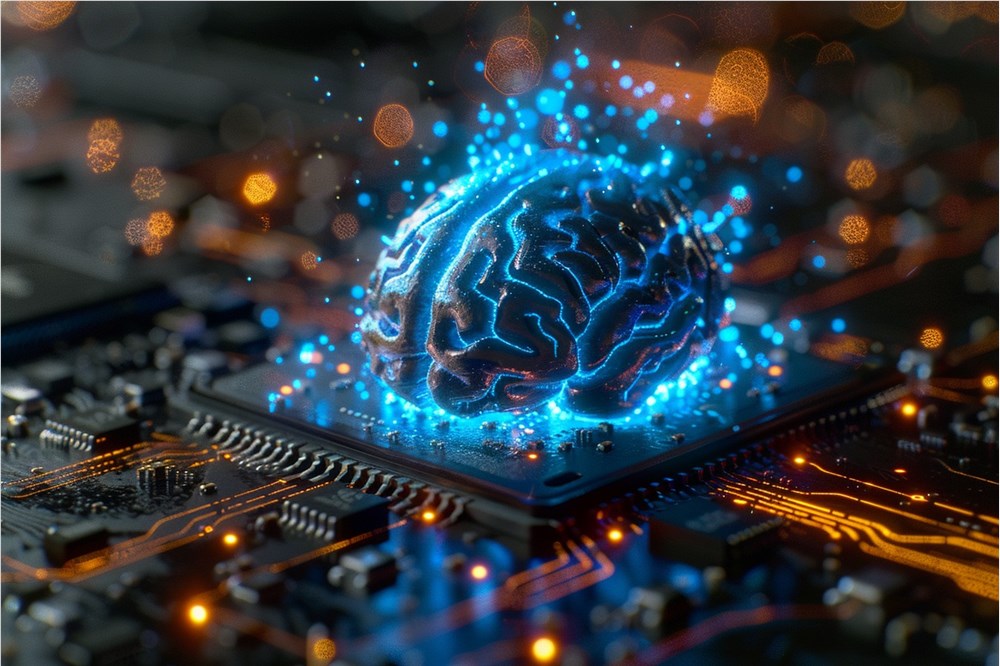With advancements in robotics, industries are increasingly adopting robots to automate various strenuous tasks. According to the International Federation of Robotics (IFR), over 540,000 new industrial robots were installed globally in 2023, bringing the total number of active industrial robots to over 4 million.
Traditional industrial robots excel at repetitive tasks but face challenges in performing delicate tasks, handling fragile materials, and adapting to changing conditions. For instance, robots in restaurant kitchens might cause more disruption than assistance. Therefore, many industrial processes still rely on human operation.

Image Source: AI-generated image, licensed through Midjourney
South Korean startup RLWRLD is tackling this issue. The company is developing a foundational AI model specifically for robotics applications by combining large language models with traditional robotics software. RLWRLD says this model will enable robots to move quickly and flexibly, possessing a degree of "logical reasoning" capability.
Hyungki Ryu, founder and CEO of RLWRLD, in an exclusive interview with TechCrunch, stated: "Using RLWRLD's foundational model, we can fully automate processes that require a lot of manual work, improving the efficiency of the work environment by learning and replicating human expertise."
The startup recently emerged from stealth mode, securing 2.1 billion KRW (approximately $14.8 million) in seed funding. The round was led by venture capital firm Hashed, with participation from Future Asset Investment and Global Brain.
Notably, RLWRLD attracted a range of major strategic investors, including Japan's Ana Group, PKS HA, Mitsui Chemicals, Shimadzu, and KDDI, as well as South Korea's LG Electronics and SK Telecom, and India's Amber Manufacturing.
RLWRLD stated that the seed funding will be used to collaborate with strategic investors on proof-of-concept projects; build computational infrastructure, such as GPUs; purchase robots and data acquisition equipment; and recruit top research talent. The company also plans to develop advanced hand manipulation involving five fingers – a capability not yet demonstrated by competitors such as Tesla, Figure AI, and 1X.
Ryu mentioned that RLWRLD is also collaborating with its strategic investors to explore automating diverse human workflows using its AI model. They are preparing a demonstration of autonomous actions based on humanoid robots, scheduled for later this year. Furthermore, the company is developing a platform that can support multiple robot types, including industrial robots, collaborative robots, autonomous mobile robots, and humanoid robots.
Founded in 2024, RLWRLD is Ryu's third startup. His second venture, Olaworks, was acquired by Intel in 2012 and eventually became Intel's computer vision R&D center in South Korea. In 2015, he founded Future Play, a startup accelerator focused on deep tech companies.
When asked about his reasons for starting another venture, Ryu noted the rapid growth of AI startups in the US, Europe, and China, contrasted with a relative scarcity in South Korea and Japan. To this end, he engaged in in-depth discussions with over 30 AI professors in South Korea and Japan to understand their challenges and opportunities.
RLWRLD is not alone in this space; startups like Skild AI and Physical Intelligence, along with large companies such as Tesla, Google DeepMind, and NVIDIA, are also developing similar foundational models. However, Ryu believes that RLWRLD's team of AI and robotics experts, combined with its high-dexterity humanoid robots, will position it for success in this field.
Key Highlights:
🌟 RLWRLD secures $14.8 million in seed funding to develop a foundational AI model for robotics.
🤖 The model aims to enhance robot flexibility and logical reasoning for more efficient automation.
🏭 RLWRLD will collaborate with multiple strategic investors to explore automation solutions for human workflows.










